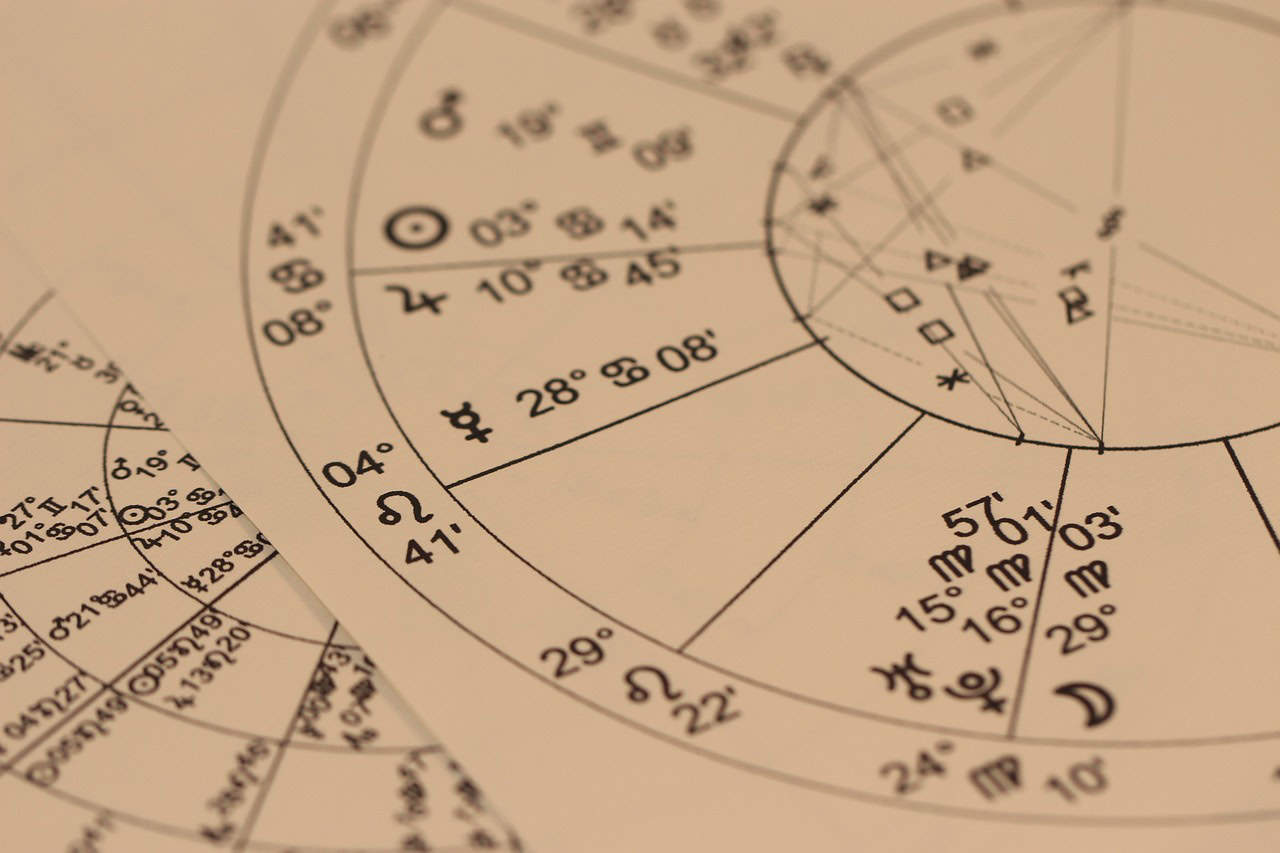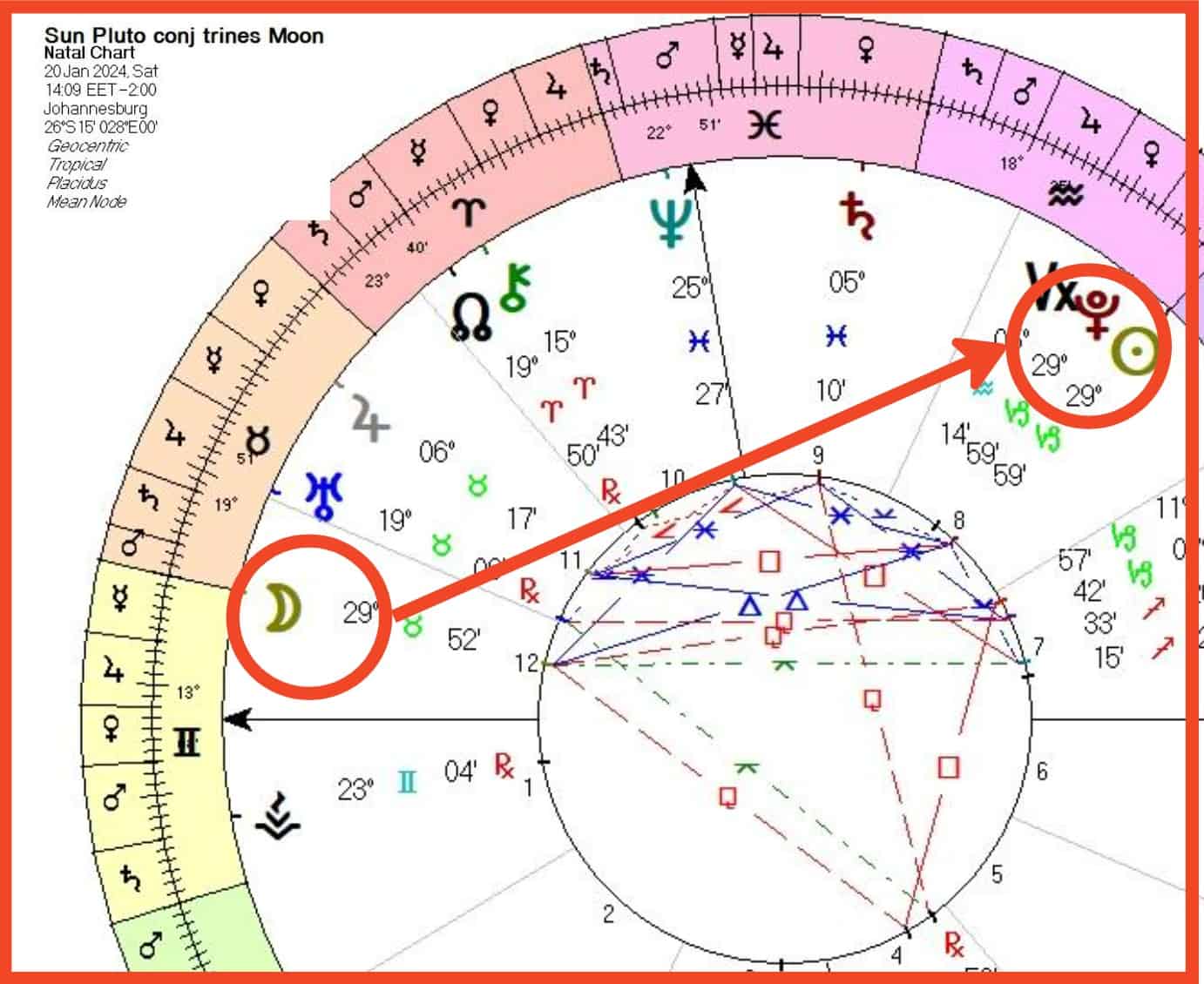The twelve astrological houses each represent different areas of life and aspects of one’s personality. Here is an overview of each house and its meanings:
1. The First House: This house represents the self, identity, appearance, and personal goals. It is the house of self-expression and how we present ourselves to the world.
2. The Second House: This house represents values, possessions, money, and financial stability. It reflects our relationship with material resources and our ability to create financial security.
3. The Third House: This house represents communication, learning, siblings, and short-distance travel. It reflects our communication style, intellectual pursuits, and relationships with siblings.
4. The Fourth House: This house represents home, family, roots, and emotional security. It reflects our relationship with our family, our sense of belonging, and our home environment.
5. The Fifth House: This house represents creativity, self-expression, romance, and children. It reflects our creative talents, ability to have fun, and romantic relationships.
6. The Sixth House: This house represents work, health, daily routines, and service. It reflects our work ethic, health habits, and ability to take care of ourselves and others.
7. The Seventh House: This house represents partnerships, relationships, marriage, and open enemies. It reflects our ability to form meaningful connections with others and navigate partnerships.
8. The Eighth House: This house represents transformation, shared resources, sexuality, and deep emotions. It reflects our ability to undergo personal transformations and our relationship with power dynamics.
9. The Ninth House: This house represents higher education, travel, philosophy, and spirituality. It reflects our quest for knowledge, spiritual beliefs, and desire for personal growth.
10. The Tenth House: This house represents career, public image, reputation, and authority. It reflects our professional aspirations, achievements, and how we are perceived by others.
11. The Eleventh House: This house represents friendships, social networks, goals, and aspirations. It reflects our ability to connect with like-minded individuals and pursue our dreams.
12. The Twelfth House: This house represents spirituality, hidden strengths and weaknesses, solitude, and the subconscious mind. It reflects our connection to the divine, inner healing processes, and the need for introspection.
The First House: Discovering Your Identity and Personal Goals
The first house is one of the most significant houses in astrology as it represents the self and one’s identity. It is often referred to as the “house of self” or “ascendant.” The placement of planets in the first house can greatly influence one’s self-image and personal goals.
The first house is all about self-expression and how we present ourselves to the world. It reflects our physical appearance, personality traits, and overall demeanor. The planets placed in the first house can amplify or diminish certain qualities, shaping our identity and influencing how others perceive us.
For example, if someone has their Sun, the planet of self-expression and vitality, in the first house, they may have a strong sense of self and radiate confidence. On the other hand, if someone has Saturn, the planet of discipline and restriction, in the first house, they may have a more reserved and serious demeanor.
The first house also represents personal goals and ambitions. It reflects our desires for self-improvement and personal growth. The planets placed in the first house can indicate the areas of life where we are most driven to succeed and make a difference.
The Second House: Finding Your Values and Financial Stability
The second house is associated with values, possessions, money, and financial stability. It reflects our relationship with material resources and our ability to create financial security.
The placement of planets in the second house can greatly influence one’s relationship with money and possessions. For example, if someone has Venus, the planet of love and abundance, in the second house, they may have a natural talent for attracting wealth and enjoy a luxurious lifestyle. On the other hand, if someone has Saturn in the second house, they may experience financial challenges or have a more conservative approach to money.
The second house also represents our values and what we consider important in life. It reflects our priorities and what we are willing to invest our time and energy into. The planets placed in the second house can indicate our core values and what brings us a sense of security and fulfillment.
Understanding the placement of planets in the second house can help individuals gain clarity on their financial goals and values. It can also provide insights into potential challenges or opportunities for growth in the area of money and possessions.
The Third House: Exploring Communication and Learning Styles
| Metrics | Values | Financial Stability |
|---|---|---|
| Number of Chapters | 10 | N/A |
| Number of Pages | 240 | N/A |
| Publication Date | January 5, 2021 | N/A |
| Author | Rachel Cruze | N/A |
| ISBN | 978-0-593-23747-4 | N/A |
| Genre | Personal Finance | N/A |
| Number of Copies Sold | N/A | 500,000+ |
| Rating on Goodreads | 4.28/5 | N/A |
| Rating on Amazon | 4.8/5 | N/A |
The third house is associated with communication, learning, siblings, and short-distance travel. It reflects our communication style, intellectual pursuits, and relationships with siblings.
The placement of planets in the third house can greatly influence one’s communication style and learning preferences. For example, if someone has Mercury, the planet of communication and intellect, in the third house, they may have a natural talent for writing, speaking, or teaching. On the other hand, if someone has Mars in the third house, they may have a more assertive and direct communication style.
The third house also represents relationships with siblings and neighbors. It reflects our ability to connect with others on an intellectual level and maintain harmonious relationships. The planets placed in the third house can indicate the dynamics of these relationships and potential areas of growth or challenges.
Additionally, the third house represents short-distance travel and local community involvement. It reflects our curiosity about the world around us and our desire to learn and explore. The planets placed in the third house can indicate our preferred modes of learning and areas of interest.
Understanding the placement of planets in the third house can provide valuable insights into one’s communication style, learning preferences, and relationships with siblings and neighbors.
The Fourth House: Understanding Your Family Roots and Home Life
The fourth house is associated with home, family, roots, and emotional security. It reflects our relationship with our family, our sense of belonging, and our home environment.
The placement of planets in the fourth house can greatly influence one’s relationship with family and home life. For example, if someone has the Moon, the planet of emotions and nurturing, in the fourth house, they may have a strong connection to their family and prioritize creating a nurturing home environment. On the other hand, if someone has Uranus in the fourth house, they may have an unconventional or unpredictable family dynamic.
The fourth house also represents our roots and ancestral heritage. It reflects our connection to our past and the influence it has on our present. The planets placed in the fourth house can indicate the qualities and values we have inherited from our family and how they shape our identity.
Additionally, the fourth house represents emotional security and our need for a stable and supportive home environment. It reflects our desire for a sense of belonging and a place to retreat to. The planets placed in the fourth house can indicate our emotional needs and potential areas of growth or challenges in creating a nurturing home life.
Understanding the placement of planets in the fourth house can provide valuable insights into one’s relationship with family, home life, and emotional well-being.
The Fifth House: Uncovering Your Creative Talents and Romantic Relationships

The fifth house is associated with creativity, self-expression, romance, and children. It reflects our creative talents, ability to have fun, and romantic relationships.
The placement of planets in the fifth house can greatly influence one’s creative talents and romantic relationships. For example, if someone has Venus, the planet of love and beauty, in the fifth house, they may have a natural talent for artistic expression and enjoy a vibrant love life. On the other hand, if someone has Saturn in the fifth house, they may experience challenges or delays in their creative pursuits or romantic relationships.
The fifth house also represents self-expression and the ability to have fun. It reflects our desire to express ourselves authentically and enjoy life’s pleasures. The planets placed in the fifth house can indicate our creative outlets and what brings us joy.
Additionally, the fifth house represents children and our relationship with them. It reflects our ability to nurture and guide the next generation. The planets placed in the fifth house can indicate our approach to parenting or our desire to have children.
Understanding the placement of planets in the fifth house can provide valuable insights into one’s creative talents, romantic relationships, and ability to find joy and fulfillment in life.
The Sixth House: Discovering Your Work Ethic and Health Habits
The sixth house is associated with work, health, daily routines, and service. It reflects our work ethic, health habits, and ability to take care of ourselves and others.
The placement of planets in the sixth house can greatly influence one’s work ethic and health habits. For example, if someone has Mars, the planet of action and energy, in the sixth house, they may have a strong drive for success and be highly motivated in their work. On the other hand, if someone has Neptune in the sixth house, they may struggle with boundaries or have a tendency to neglect their own needs in favor of helping others.
The sixth house also represents daily routines and our approach to self-care. It reflects our ability to establish healthy habits and maintain a balanced lifestyle. The planets placed in the sixth house can indicate our work environment, preferred work style, and potential areas of growth or challenges in maintaining good health.
Additionally, the sixth house represents service to others and our ability to contribute to society. It reflects our desire to make a difference and help those in need. The planets placed in the sixth house can indicate our preferred ways of serving others and potential areas of growth or challenges in this area.
Understanding the placement of planets in the sixth house can provide valuable insights into one’s work ethic, health habits, and ability to find fulfillment through service.
The Seventh House: Understanding Your Relationships and Partnerships
The seventh house is associated with partnerships, relationships, marriage, and open enemies. It reflects our ability to form meaningful connections with others and navigate partnerships.
The placement of planets in the seventh house can greatly influence one’s relationships and partnerships. For example, if someone has Venus, the planet of love and harmony, in the seventh house, they may have a natural talent for forming harmonious and balanced partnerships. On the other hand, if someone has Pluto in the seventh house, they may experience intense and transformative relationships.
The seventh house also represents marriage and committed partnerships. It reflects our desire for partnership and our ability to create a balanced and harmonious relationship. The planets placed in the seventh house can indicate the qualities we seek in a partner and potential areas of growth or challenges in our relationships.
Additionally, the seventh house represents open enemies or those who oppose us. It reflects our ability to navigate conflicts and challenges in relationships. The planets placed in the seventh house can indicate potential areas of conflict or challenges in forming partnerships.
Understanding the placement of planets in the seventh house can provide valuable insights into one’s relationships, partnerships, and ability to create harmonious connections with others.
The Eighth House: Exploring Your Innermost Desires and Transformations
The eighth house is associated with transformation, shared resources, sexuality, and deep emotions. It reflects our ability to undergo personal transformations and our relationship with power dynamics.
The placement of planets in the eighth house can greatly influence one’s innermost desires and transformative experiences. For example, if someone has Pluto, the planet of transformation and power, in the eighth house, they may experience intense personal transformations and have a deep understanding of their own desires. On the other hand, if someone has Jupiter in the eighth house, they may have a more optimistic and expansive approach to transformation.
The eighth house also represents shared resources and our relationship with others’ money or possessions. It reflects our ability to navigate power dynamics in relationships and manage shared resources. The planets placed in the eighth house can indicate potential areas of growth or challenges in this area.
Additionally, the eighth house represents sexuality and deep emotions. It reflects our ability to connect on an intimate level and explore our own depths. The planets placed in the eighth house can indicate our approach to sexuality and potential areas of growth or challenges in this area.
Understanding the placement of planets in the eighth house can provide valuable insights into one’s innermost desires, transformative experiences, and ability to navigate power dynamics in relationships.
In conclusion, understanding the astrological houses and their meanings can provide valuable insight into different aspects of one’s life. By exploring the placement of planets in each house, individuals can gain a deeper understanding of themselves and their life path. The first house represents identity and personal goals, the second house represents values and financial stability, the third house represents communication and learning styles, the fourth house represents family roots and home life, the fifth house represents creative talents and romantic relationships, the sixth house represents work ethic and health habits, the seventh house represents relationships and partnerships, the eighth house represents innermost desires and transformations.
If you’re interested in exploring the fascinating world of astrological houses, you might also enjoy reading about the mystical and tragic life of Shane MacGowan. This article delves into the connection between his life experiences and the astrological houses, shedding light on how they can shape our destinies. Discover the profound influence of astrology on one’s journey by clicking here. Additionally, if you’re curious about the role of Jupiter in astrological mythology, this article provides a captivating exploration. Uncover the significance of Jupiter’s placement in your birth chart and its impact on your life’s path by visiting this link. Lastly, if you want to stay updated on the latest changes within Astrology South Africa’s management team, check out their announcement here.
FAQs
What are astrological houses?
Astrological houses are twelve divisions of the zodiacal circle that represent different areas of life, such as personality, relationships, career, and spirituality.
What is the significance of astrological houses?
Astrological houses help astrologers interpret the positions of planets and other celestial bodies in a person’s birth chart. Each house represents a different aspect of life and can provide insight into a person’s strengths, weaknesses, and potential challenges.
What are the twelve astrological houses?
The twelve astrological houses are: 1st House (Self), 2nd House (Money and Possessions), 3rd House (Communication), 4th House (Home and Family), 5th House (Creativity and Romance), 6th House (Health and Service), 7th House (Partnerships), 8th House (Transformation), 9th House (Philosophy and Travel), 10th House (Career and Public Image), 11th House (Friendships and Community), and 12th House (Spirituality and Inner Life).
How are astrological houses calculated?
Astrological houses are calculated based on the time and location of a person’s birth. The birth chart, also known as the natal chart, is a map of the positions of the planets and other celestial bodies at the time of a person’s birth. Astrologers use this chart to determine the placement of the astrological houses.
Can astrological houses change?
Astrological houses do not change, but the positions of the planets and other celestial bodies within them can change as they move through the zodiac. This movement, known as transits, can have an impact on a person’s life and can be used to make predictions about future events.




